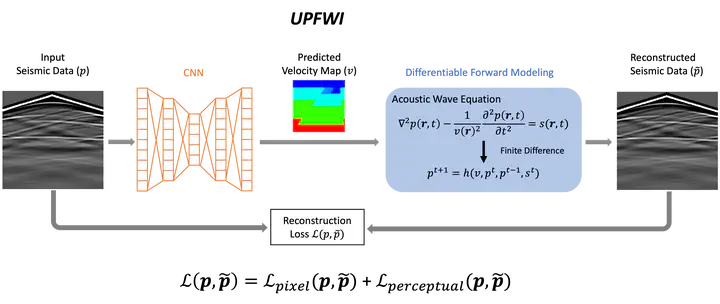Unsupervised learning of full-waveform inversion: Connecting CNN and partial differential equation in a loop
 UPFWI
UPFWI
Abstract
This paper investigates unsupervised learning of Full-Waveform Inversion (FWI), which has been widely used in geophysics to estimate subsurface velocity maps from seismic data. This problem is mathematically formulated by a second order partial differential equation (PDE), but is hard to solve. Moreover, acquiring velocity map is extremely expensive, making it impractical to scale up a supervised approach to train the mapping from seismic data to velocity maps with convolutional neural networks (CNN). We address these difficulties by integrating PDE and CNN in a loop, thus shifting the paradigm to unsupervised learning that only requires seismic data. In particular, we use finite difference to approximate the forward modeling of PDE as a differentiable operator (from velocity map to seismic data) and model its inversion by CNN (from seismic data to velocity map). Hence, we transform the supervised inversion task into an unsupervised seismic data reconstruction task. We also introduce a new large-scale dataset OpenFWI, to establish a more challenging benchmark for the community. Experiment results show that our model (using seismic data alone) yields comparable accuracy to the supervised counterpart (using both seismic data and velocity map). Furthermore, it outperforms the supervised model when involving more seismic data.